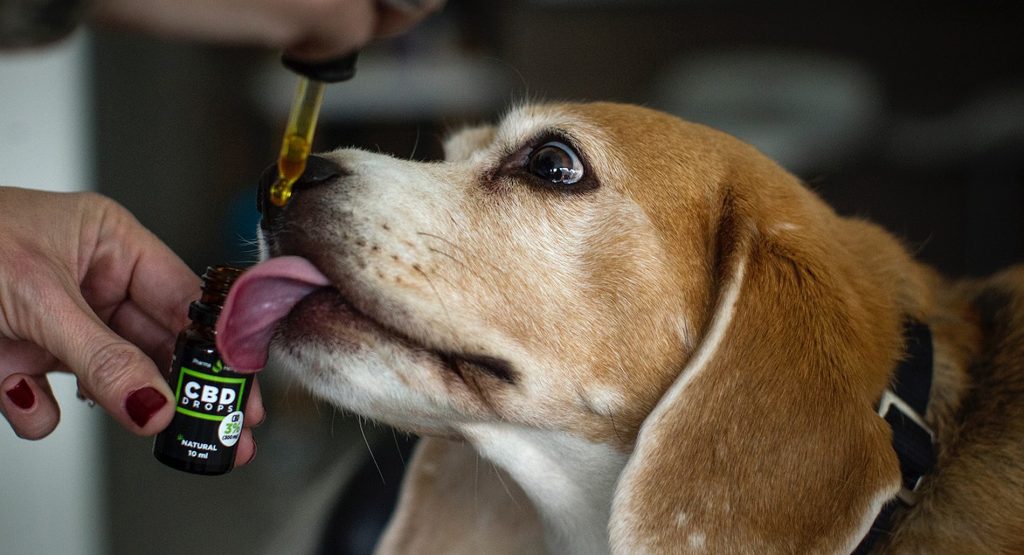If you have ever had a pup that becomes nervous around storms or a cat that has problems with arthritis, you know that they frequently experience problems that we want to fix, yet they seem unsolvable.
As pet owners, it’s difficult to see your furry friend suffering and feel powerless to help. However, for some health woes, there might be a new option: CBD.
What is CBD? CBDs’ longer name is cannabidiol, and it’s a compound in the cannabis plant, which is mainly related to marijuana. Maybe the most critical thing to state is that it will not get your furry friend high. Cannabis has an additional compound, referred to as THC, or tetrahydrocannabinol.
THC is the primary psychoactive ingredient found in marihuana and causes the high for human beings. Although it derives from the same plant, cannabidiol doesn’t have psychoactive effects on animals or humans, and it’s becoming used more often for health problems in humans. Veterinarians recently have started to realize that it may also be beneficial for animals.
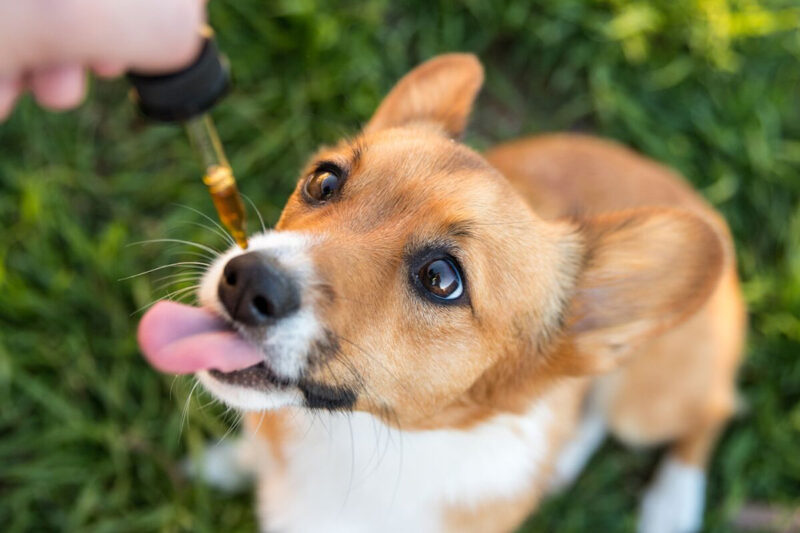
Can Cannabidiol Get My Dog or Cat High?
Cannabidiol is the non-intoxicating element of both marijuana and hemp plants. Unlike tetrahydrocannabinol, it can’t get you or your animals high, if appropriately dosed.
But cannabidiol may influence brain activity in animals, which causes some of the possible benefits, like a decrease in anxiety and stress for cats and dogs.
Pets never should be offered an intoxicating level of tetrahydrocannabinol. It is vital that you go over dosage directions with your vet and never experiment with products that aren’t specifically created for animals.
Is CBD Oil for Pets Safe?
Research has proven that CBD products have a broad margin of safety in cats and dogs alike. Several vet studies published within the last couple of years have proven that, even when offered high cannabidiol levels, animals experienced no major adverse effects.
Keep in mind, CBD has no intoxicating properties and won’t get your dog or cat high.
As more studies are performed, we’ll all gain more details concerning the effect of long-term use of the product for pets. Also, with the development of the internet, there are many choices for you to buy online CBD oil for pets. Here, we get into the top three benefits of using CBD oil for pets:
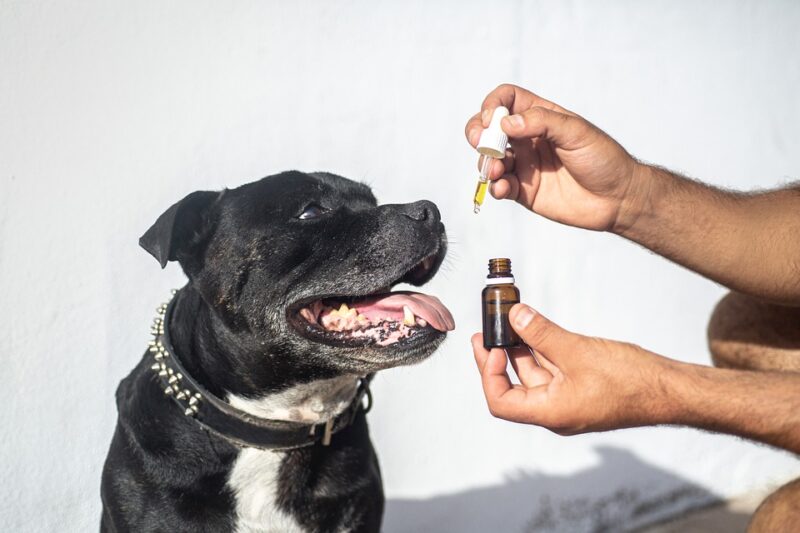
CBD May Help Decrease Anxiety
If your canine exhibits destructive behavior, barks excessively, or seems overly restless when you leave your home, there’s a good chance they are suffering from separation anxiety.
As with humans, CBD oil for pets alleviates anxiety so your pet may be calmer when you aren’t home. It also can help decrease anxiety related to noise phobias, for your dog not to hide every time there are nearby fireworks or a thunderstorm.
CBD May Treat Epilepsy and Seizures
It’s a common use for cannabidiol in humans; however, pets also can experience seizures, and CBD oil for pets may help. There are other medications frequently prescribed to help dogs and cats with seizure activity, yet those may be harmful to their liver and might not always help.
CBD Alleviates Pain
It’s well-reported that CBD oil for pets has been efficient against numerous kinds of pain, which includes nerve-associated pain and inflammation. Also, it may help relieve the effects of arthritis, which helps with mobility and joint pain
But those three are not the only benefits. We’ve got two more for you:
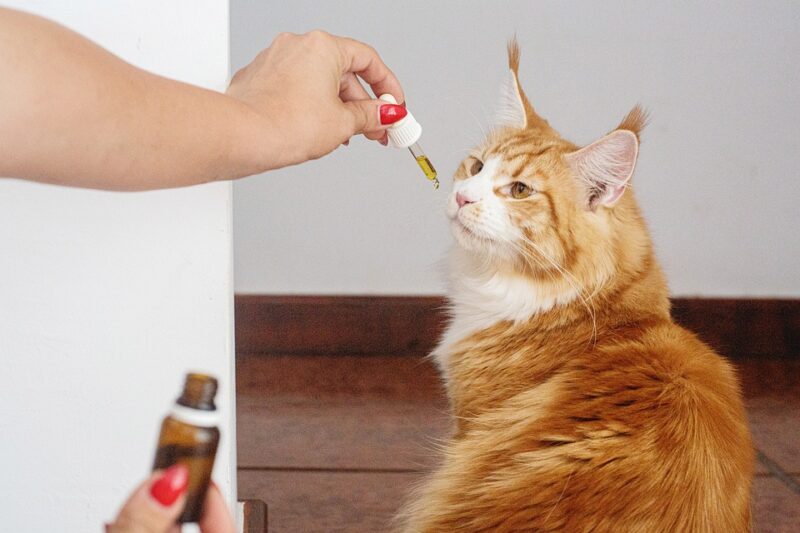
CBD May Help with Nausea and Appetite
Even though human beings frequently state getting the “munchies” after or during using marijuana, your furry pal does not need to get high to feel that effect. If your pet doesn’t have much of an appetite, oil products for pets may help to increase their appetite. It also has been proven to help with nausea and vomiting, even when drugs or toxins cause those symptoms.
CBD May Help Battle Cancer
Anecdotal evidence and preliminary studies have implied that CBD oil for pets may have an anti-tumor effect, which stops cancerous cells from increasing and growing tumor cell death by blocking their capability of producing energy.
It is vital to bear in mind that its effects for pets still are being researched, especially as they’re associated with dogs and cats. Not all companies that offer cannabidiol for animals are trustworthy; therefore, always ensure that you conduct your research before purchasing a product for your dog or cat. Cannabidiol still isn’t legal at the federal level, so in the majority of states, vets are not permitted to bring up the subject with their patients.
However, if you believe CBD oil for pets may be useful for your pet, do not hesitate to consult your veterinarian about it. If you decide to try cannabidiol, it is important to buy products specially designed for animals. Human cannabidiol products frequently still have trace amounts of tetrahydrocannabinol.
This compound generates a high for people, but for pets, it may be toxic, even in the small dosages found in cannabidiol products. CBD oil for pets might not turn out to be a cure-all for every issue our pets have, yet for many pet owners, it provides them an additional method of helping their pets.
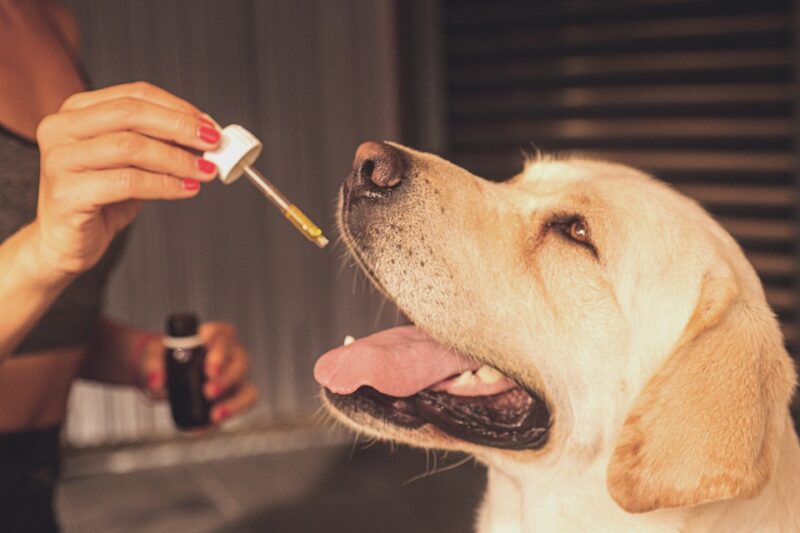
How Do Pets Respond to CBD?
Substantial studies still need to be done to fully compare the differences between the endocannabinoid system of animals and how the system reacts to phytocannabinoids such as cannabidiol.
There are two kinds of cannabinoid receptors in an animal’s body—CB2 and CB1. Those receptors assist in balancing and regulating an animal’s central nervous system and immune system, which ultimately can influence mood, allergies, pain, and inflammation.
There are three endocannabinoid system components: the enzymes, the endocannabinoids, and the receptors. The endocannabinoids are produced on demand and adhere to the receptors, particularly during times of injury, disease, or stress.
Phytocannabinoids, such as cannabidiol, work like the endocannabinoids by additionally adhering to the cannabinoid receptors.
Canines have the highest density of CB1 receptors inside the brain, as compared with any other species, which includes human beings. One publication recently indicated that felines seem to have lower absorption and potentially faster cannabidiol elimination, as compared with dogs. So, felines might have to be dosed more frequently to maintain the right cannabidiol blood levels.
Every animal is different, and not all cats and dogs will see the exact same results from the use of cannabidiol products. Consult your vet if you have any questions or concerns regarding how your pet is responding to a certain product.

